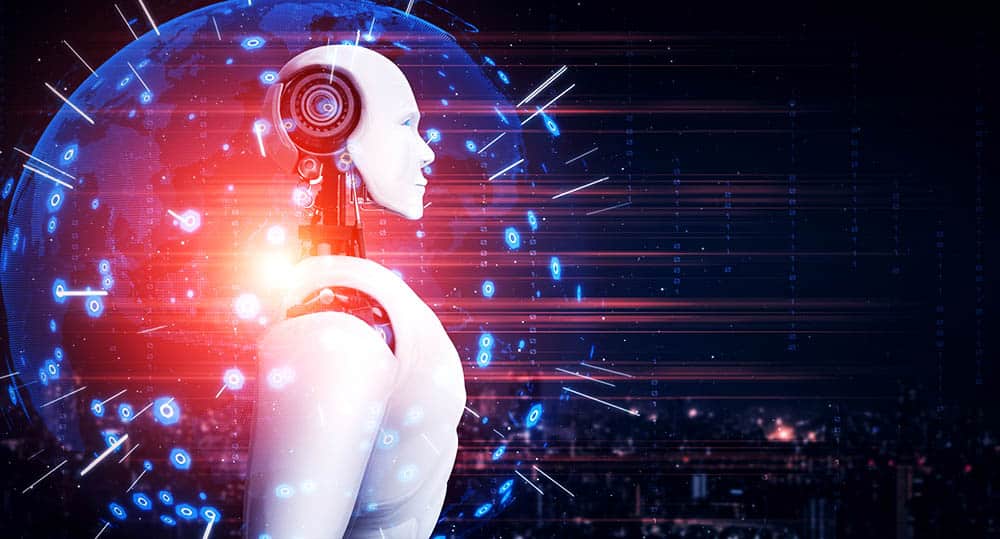The Rise of Deep Learning: A Game Changer in Transforming Industries
Artificial intelligence (AI) is revolutionizing industries and transforming the way we live our lives. From predictive analytics to natural language processing, AI is being integrated into every aspect of our daily activities. Deep learning is a subset of AI that has emerged as an ultimate solution for transforming industries and supercharging innovation.
The Basics of Deep Learning and Its Applications
Deep learning is a machine learning technique that uses artificial neural networks to enable computers to learn and improve automatically. Its ability to process and interpret large amounts of data with complex structures has enabled it to revolutionize several industries. Some of the applications of deep learning include image, speech, and music recognition, natural language processing, data analytics, and robotics.
Why Deep Learning is the Ultimate Solution to Transforming Industries
There are several reasons why deep learning has become the ultimate solution for transforming industries. Here are some of them:
Unmatched Accuracy
Deep learning models can process and analyze vast amounts of data with unmatched accuracy. They can detect patterns and correlations that may be impossible for humans to do, making them ideal for complex and data-intensive tasks.
Fast Learning and Real-Time Response
Deep learning algorithms can learn quickly, and with sufficient computational power, they can perform real-time decision making. This ability is critical in industries such as finance, healthcare, and manufacturing, where timely decision-making can have significant impacts on outcomes.
Improved Efficiency and Reduced Costs
Deep learning can automate complex tasks and processes, enhancing efficiency and productivity while reducing costs. For example, chatbots powered by deep learning can help automate customer support, reducing the need for human intervention.
Deeper Insights and Personalization
Deep learning algorithms can uncover insights and patterns that may not be obvious with traditional data analysis methods. This can enable businesses to personalize their services and products, improving customer satisfaction and loyalty.
How Deep Learning is Transforming Different Industries
Deep learning is transforming several industries, including:
Healthcare
Deep learning is being used in healthcare to improve diagnosis, treatment, and patient care. It is being used to analyze medical images, detect diseases, and predict treatment outcomes. For example, deep learning algorithms can analyze MRI scans to detect brain tumors, reducing diagnosis time and improving accuracy.
Finance
Deep learning is being used in finance to improve portfolio management, fraud detection, and risk assessment. It can analyze vast amounts of financial data and identify patterns that may be difficult to detect with traditional methods. For example, deep learning can detect money laundering patterns in financial transactions, reducing the risk of financial crimes.
Retail
Deep learning is being used in the retail industry to personalize customer experience, optimize prices, and improve inventory management. It can analyze customer behavior and preferences, enabling businesses to offer personalized recommendations and promotions. Additionally, it can optimize prices based on factors such as customer demand, product availability, and seasonality.
Manufacturing
Deep learning is being used in manufacturing to optimize production processes, reduce downtime, and improve quality control. It can predict equipment failure before it occurs, enabling maintenance teams to perform preventive maintenance. Additionally, it can analyze data from sensors and machines to optimize production processes and reduce waste.
Tips for Implementing Deep Learning in Your Industry
If you are considering implementing deep learning in your industry, here are some tips to help you get started:
Identify the Problem
Identify the problem you want to solve using deep learning. This will help you determine the type of data you need to collect, the algorithms to use, and the metrics to measure success.
Collect and Prepare Data
Data is the lifeblood of deep learning. Collect as much data as possible, and ensure that it is of high quality. Additionally, you will need to preprocess the data to remove noise, missing values, and outliers.
Choose the Right Algorithm
Choose the right algorithm for the problem you want to solve. Several types of deep learning algorithms are available, including convolutional neural networks, recurrent neural networks, and deep belief networks.
Provide Sufficient Computing Power
Deep learning requires significant computing power to train and test models. Consider using cloud-based platforms such as Amazon Web Services (AWS), Google Cloud Platform (GCP), or Microsoft Azure to provide the required computing power.
Conclusion
Deep learning is the ultimate solution for transforming industries and supercharging innovation. Its unmatched accuracy, fast learning, and real-time response, improved efficiency and reduced costs, and deeper insights and personalization have made it a game changer in several industries. As we continue to integrate deep learning into every aspect of our daily lives, there is no doubt that it will continue to revolutionize industries and transform the way we live our lives.
- Why Deep Learning is the Ultimate Solution to Transforming Industries and Supercharging Innovation - 28 de mayo de 2023
- Why You Need to Start Listening to Podcasts Today – The Ultimate Game Changer for Your Daily Commute! - 28 de mayo de 2023
- Revolutionize Your Workflow: Unleash Your Productivity Potential with these Game-Changing Tools - 28 de mayo de 2023



